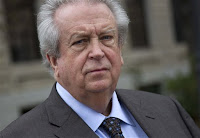. . . only if "payments are made in return for an explicit promise or undertaking by the official to perform or not to perform an official act, are they criminal."
A Defendant does not commit a crime by giving something of value to a government official unless the Defendant and official agree that the official will take specific action in exchange for the thing of value.
Lobbyists, as well as private individuals and other entities, often donate to the political campaigns of public officials and there is nothing illegal about this practice. Official acts that advance the interests of a lobbyist's clients, taken shortly before or after campaign contributions are solicited or received from the lobbyist, can, depending on the circumstances, be perfectly legal and appropriate.
Therefore, the solicitation or acceptance by an elected official of a campaign contribution does not, in itself, constitute a federal crime, even though the donor has business pending before the official, and even if the contribution is made shortly before or after the official acts favorably to the donor.
However, when there is a quid pro quo agreement, orally or in writing, that is, a mutual understanding, between the donor and the elected official that a campaign contribution is conditioned on the performance of a specific official action, it constitutes a bribe under federal law.
"It's the typical kind of evidence you would find in this kind of a case. I think there are enough facts (that) with a particular jury and a particular set of prosecutors you may have gotten a conviction," said Carroll. . . .





